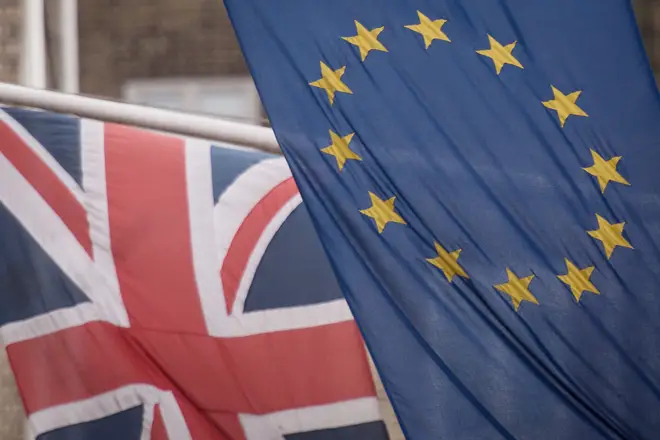
Ian Payne 4am - 7am
14 September 2020, 14:27 | Updated: 14 September 2020, 14:34

The deadline for Britain to strike a deal with the European Union is fast approaching - and fears of a No Deal Brexit are growing.
The Brexit transition period ends on 31 December and if a deal is not secured by then, the UK will have to go it alone.
In this scenario, the UK would officially be defined as having a “third country status” and would rest on World Trade Organisation terms.
But what exactly does a “third country” mean? Here we explain the terminology.

James O'Brien baffled by support for government's Brexit bill
The official European Union regulations define a “third country” as one that is “not a member of the European Union as well as a country or territory whose citizens do not enjoy the European Union right to free movement”.
These include nations outside the European continent, such as Japan, the USA and Canada.
Third countries are by default not subject to the four central freedoms enshrined in the EU - free movement of people, capital, goods and services. However, these rights still apply if the country signs a bilateral free trade agreement guaranteeing them, as Norway has done.
Third countries on the European continent can still be members of the European Economic Area (EEA) and/or the European Free Trade Area (EFTA), so it is not a complete barrier to trade.

Sir Keir Starmer: Boris Johnson is 'all over the place' on Brexit
If Britain crashes out of the EU without a deal, there will be no pre-existing or legally agreed customs arrangement to fall back on to ensure seamless trade.
This means it would present a cliff edge for many industries and potentially create a severe economic hit, as it could take years for a new customs and trading arrangement to be negotiated.
While non-EU members Norway and Canada have sealed their own agreements with the EU that keeps goods moving freely, these agreements have taken years to reach.
The UK also has the additional issue of the Ireland land border and protecting the Good Friday Agreement - which has proved a major sticking point in Brexit negotiations so far.
Unite, the leading trade union, has warned UK ports will be plunged into “chaos and confusion” in the new year unless post-Brexit customs systems and lorry parks are urgently completed.